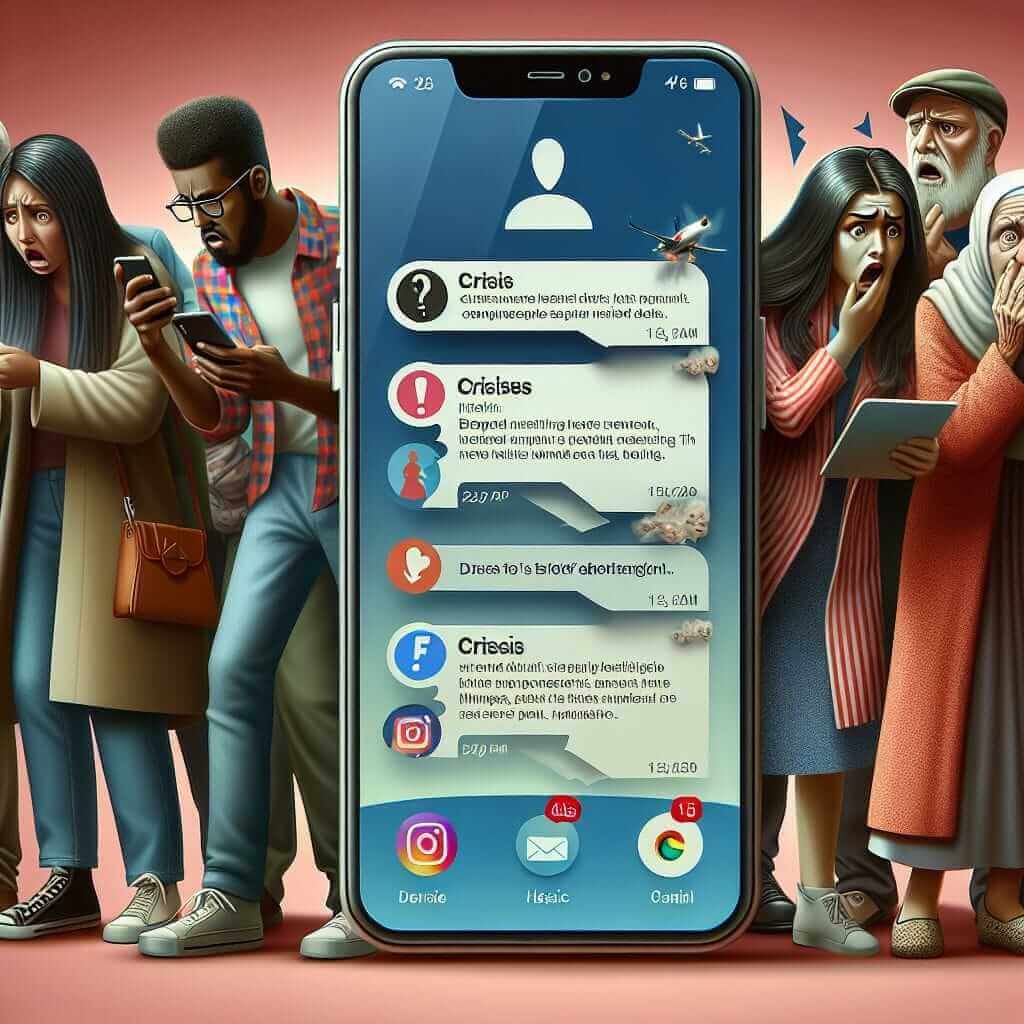“The role of social media in crisis communication” is a highly relevant and frequently appearing topic in IELTS Writing Task 2. This signifies the growing importance of social media in managing and navigating crisis situations in the modern world.
Potential IELTS Writing Task 2 Questions
Here are some potential IELTS Writing Task 2 questions related to this keyword:
- Some people believe that social media is the most effective tool for managing crisis communication, while others argue that traditional media still plays a more vital role. Discuss both views and give your own opinion.
- Social media has revolutionized the way we receive and share information during crises. To what extent do you agree or disagree with this statement?
- The use of social media during emergencies and disasters can have both positive and negative consequences. Discuss the advantages and disadvantages of relying on social media for crisis communication.
Sample Answer and Analysis
Let’s choose the first question from the list above and craft a sample answer:
Question:
Some people believe that social media is the most effective tool for managing crisis communication, while others argue that traditional media still plays a more vital role. Discuss both views and give your own opinion.
Answer:
In today’s interconnected world, the way information is disseminated during crises has been significantly altered by the advent of social media. While some argue that it reigns supreme in crisis communication, others maintain that traditional media remains more impactful. This essay will delve into both perspectives before presenting my own viewpoint.
Proponents of social media’s dominance highlight its unparalleled reach and speed. Platforms like Twitter and Facebook enable instant information sharing with a global audience, surpassing the limitations of traditional media’s production and distribution cycles. This immediacy proves invaluable during emergencies, enabling swift dissemination of safety instructions, updates on the situation, and crucial resources. Furthermore, social media fosters two-way communication, allowing organizations to address concerns, dispel rumors, and build trust directly with the public in real-time.
However, detractors emphasize the enduring significance of traditional media. They argue that established news outlets, with their journalistic integrity and fact-checking processes, offer a more reliable source of information, especially in the face of misinformation often rampant on social media. The editorial oversight and accountability inherent in traditional media provide a crucial layer of credibility, which can be lacking in the unfiltered world of social media. Additionally, traditional media outlets often possess a wider reach among demographics less active on social media, ensuring broader information dissemination.
In my opinion, both social and traditional media play complementary roles in effective crisis communication. While social media’s immediacy and direct engagement are undeniable assets, the reliability and established infrastructure of traditional media remain crucial. A synergistic approach, leveraging the strengths of both, can ensure timely, accurate, and widespread information dissemination during critical events.
Word Count: 278 words
Notes:
- Structure: The essay follows a clear structure, addressing both sides of the argument before presenting a balanced personal opinion.
- Vocabulary: The essay utilizes topic-specific vocabulary (e.g., dissemination, immediacy, editorial oversight, credibility) effectively.
- Grammar: Complex sentence structures and a variety of grammatical structures are used accurately.
- Coherence and Cohesion: Linking words and phrases (e.g., while, furthermore, however, additionally) ensure a smooth flow of ideas.
Difficult Vocabulary:
- Disseminated (verb) /dɪˈsemɪneɪtɪd/: To spread widely.
- Immediacy (noun) /ɪˈmiːdiəsi/: The quality of being instant.
- Editorial oversight (noun) /ˌedɪˈtɔːriəl ˈoʊvərsaɪt/: Supervision and control of content by editors.
- Credibility (noun) /ˌkredəˈbɪləti/: The quality of being trusted and believed in.
- Synergistic (adjective) /ˌsɪnərˈdʒɪstɪk/: Relating to the interaction of two or more agents to produce a combined effect greater than the sum of their separate effects.

Conclusion
This guide provides a starting point for approaching “The role of social media in crisis communication” in your IELTS Writing Task 2. Remember to practice writing essays on this and similar topics, focusing on clarity, accuracy, and a strong vocabulary to achieve a high band score.
Other potential topics within this theme:
- The ethics of using social media during crises
- The impact of social media on disaster relief efforts
- The role of governments in regulating social media during emergencies